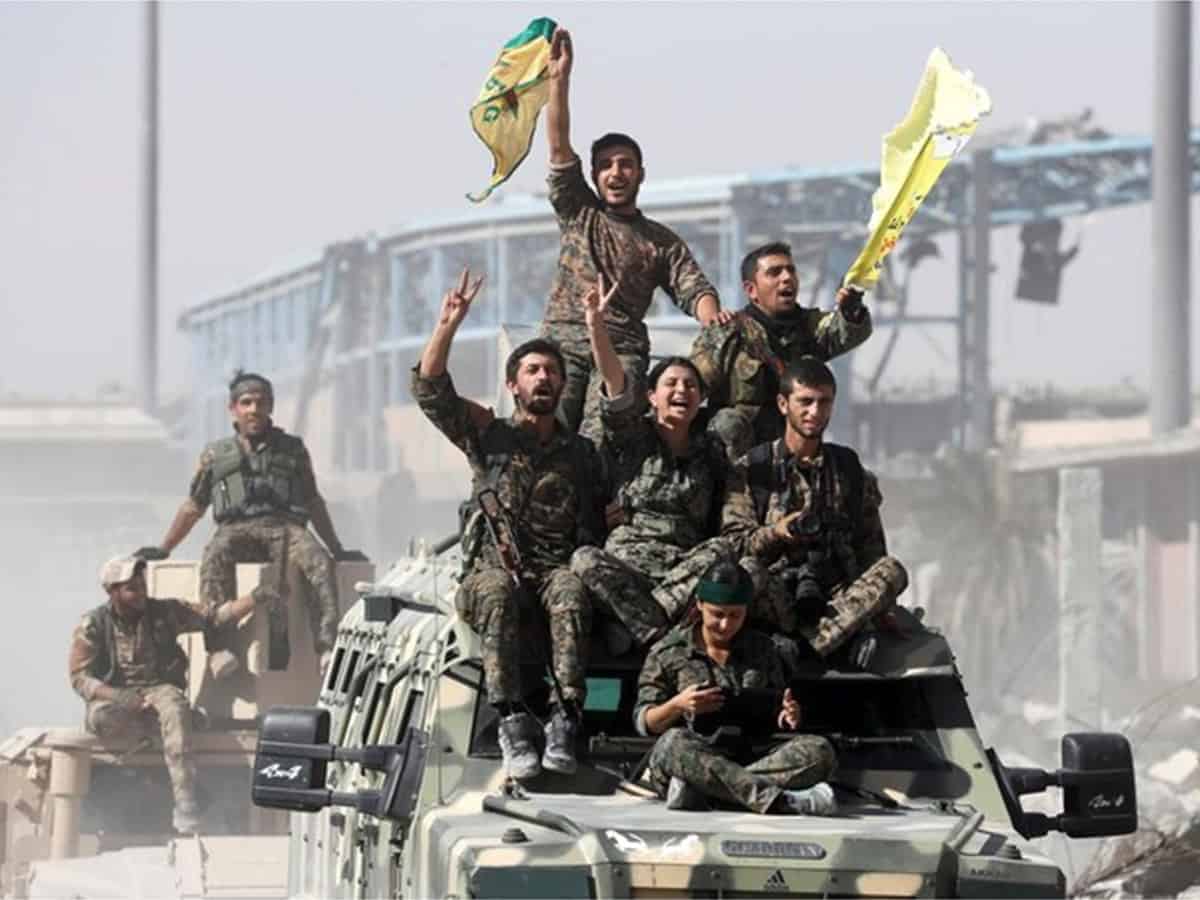
When Donald Trump left the White House, America’s policies in Syria were a shambles: The US had betrayed the Kurds by allowing Turkey to send its troops to disrupt their homeland at the Syria-Turkey border; despite repeated Israeli air attacks, Iran remained a solid bulwark supporting the Assad government; and Moscow had become the go-to capital for all regional leaders to address their security concerns. Only a small detachment of 500 US soldiers remains in eastern Syria to deny the government control of the oil fields.
Given the support the Assad regime enjoys from Russia and Iran, the latter backed by Shiite militias from other neighboring countries, there is now no threat to it.
Biden has signaled that he has no plans to withdraw from the country, but no other details of his administration’s policy have so far been announced. However, various forces in Syria are pursuing policies of confrontation and collaboration to consolidate their interests and ensure they will not be adversely affected by any new approaches from Washington.
The Syrian Kurds are taking two actions simultaneously: Confronting Turkish and Syrian government forces and boosting unity within their ranks. Thus, at the end of January, there were bomb attacks on government targets in Hasakah province in the northeast, with the situation only being brought under control through robust Russian intervention. The Kurds also attacked Turkish forces in the northwest, at Afrin and Azaz. These enclaves had been under Kurdish control up to 2018, when they were forcibly taken by the Turks.
These Kurdish attacks are signals to US officials that their aspirations should be Washington’s paramount concern. But the attacks have also encouraged an unintended engagement between Ankara and Damascus, which are sharing concerns about the Kurds bringing large tracts of territory under their control and quietly discussing how to coordinate their security policies to foil Kurdish aspirations.
While a full reconciliation of Syrian and Turkish interests will not occur immediately, there is considerable scope for them to cooperate on specific issues of immediate concern, such as pressurizing the Kurds militarily in the northeast. Besides curbing Kurdish aspirations, Russia, Turkey and Syria also hope to encourage the US to withdraw its remaining troops from the region, propelled by concerns that, amid the ongoing conflicts, they could suffer casualties.
Against this background, the Kurds are seeking to achieve unity in their own ranks. At the end of January, the Democratic Unity Party, the political wing of the Kurdish Syrian Democratic Forces militia, met opposition groups clubbed under the umbrella of the Kurdish National Council, which is linked to Turkey. Given the competing affiliations of the Kurdish groups, unity is a remote prospect.
The principal action to curb Iran’s military capacity has been taken by Israel. After suffering numerous Israeli air attacks on its assets near Damascus, Iran shifted its armaments, ammunition and personnel to the Iraq border. But even here Israeli attacks have been relentless, with four air assaults through January. This has compelled Iran to move its heavy equipment underground and to near residential areas.
One unlikely player who is seeking to present a burnished image to the US administration is veteran extremist militant Abu Mohammed Al-Julani, head of the Al-Qaeda-affiliated Jabhat Al-Nusra, which he renamed Hayat Tahrir Al-Sham in 2016 and which currently controls Idlib. In January, he sauntered through the refugee camps around Idlib and expressed concern about the welfare of the residents.
Al-Julani crowned these public interactions with an interview over three days with an American journalist, in which he was photographed not in traditional garments but in a Western-style suit, adding sartorial flexibility to policy moderation. His intention is to project himself as the leader of a political party that is backed by a powerful military force and enjoys popular support; hence, he should be viewed as a legitimate player in Syria’s political scenario.
As Biden seeks to develop a new Syria policy, he will be constrained by certain realities. Russia, Iran and Turkey, partners in the Astana peace process, have worked together for four years. Thus, while their interests are not identical, they have learned to accommodate each other and find solutions to immediate challenges. Each of them has built up strong local alliances that provide them with solid bases of support and buttress their interests. They have high strategic stakes in Syria and will not be readily dislodged. Their tripartite alliance is, in fact, resilient enough to withstand any pressure that the US or Israel may mobilize against it.
Given that the US’ coercive approach has yielded hardly any positive results, the best policy Biden could consider would be engagement with the Damascus regime and the Astana process partners to work together on shared interests: Maintaining Syria’s unity, ensuring domestic security, promoting the political process, and working on rehabilitation and reconstruction.
This alone would help reverse the path of death and destruction the regime and its neighbors took in Syria 10 years ago.
Talmiz Ahmad is an author and former Indian ambassador to Saudi Arabia, Oman and the UAE. He holds the Ram Sathe Chair for International Studies, Symbiosis International University, Pune, India.

